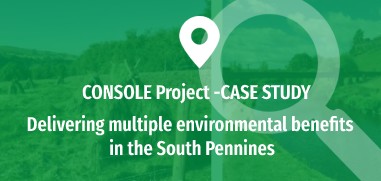Summary
The network was initially set up by a farm advisor who had good contacts with farmers, local authorities and other large landowners. Land managers in this area have previously struggled to access funding because it is not located in a National Park or Area of Outstanding Natural Beauty which receive additional funding from the Government. This is further compounded by the small size of many of the farms which makes it hard for them to apply to certain farm support payment schemes.
A particular highlight of this network was working with a local council that had been allocated £2 million following the 2015 floods. The group worked to ensure £500k was allocated to an Agri-Environmental Scheme (AES) which the network developed and Calderdale Council oversees. The network has also worked with the Woodland Trust to enhance the woodland creation offer.
Objectives
- Build an informed and cohesive, landscape scale, land management
- Community
- Increased woodland management and creation
- Improved water quality and flood risk in the region
- Improved grassland and moorland habitat connectivity
- Development of non-government funding streams for the delivery of ecosystem services in land management
- Addressing potential issues resulting from sub-optimal land management
Public Goods








Problem description
The South Pennines network includes areas of protected status including SSSIs, SACs and SPAs. However unlike many other CSFFs in the Yorkshire region it is not in a National Park so does not benefit from the additional Government funding that those areas receive.
Farming incomes in this area are built on a long history of mixed livelihoods, from weaving on hand looms to working in the mills during the industrial revolution. The requirement for farmers to supplement their income with out-of-farm activities continues, and can lead to sub-optimal land management. The CSFF strives for a
future free from the threat of financial constraints and is aiming for continued land stewardship not intensification of farming.
